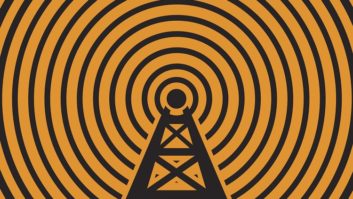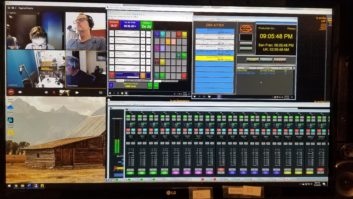A good friend of RW recommended that we watch a recent CBC Newsword program, “The End,” for troubling insights into the future of our industry.
The premise is stated in the program’s introduction: “The experts have spoken. Mass media is reported to be on its last legs. A handful of new media entities with remarkably silly names: Blogs, Vlogs, YouTube, Podcasts, and Yahoo! are leading the charge, leaving traditional forms of communications to play catch-up or get left behind.” The host explores the fate of mass media and wonders “whether we are nearing a world without television, radio or print.” You can watch it at www.cbc.ca/theend.
This kind of program comes along from time to time; but given the prevalence of such commentary about old media, we thought we’d take a look based on our colleague’s recommendation. And while the show brings a Canadian viewpoint to the matter, the discussion applies to U.S. media as well.
The radio portion of the program’s analysis contains nothing that hasn’t been presented in these pages for many years. We found it a shallow overview for consumers, one that brings most of them nothing they don’t already know. The program is a series of clips from an odd collection of pros, amateurs and consumers giving their cursory opinions without any real investigation of anyone’s claims — certainly nothing very authoritative.
Contrast this to “The Long Tail,” which brought fresh analysis and clear thinking to the digital media environment, and set a lot of folks straight on things that were previously uncertain; that’s why it has had such sustained resonance, as RW’s Skip Pizzi wrote in an analysis earlier. We wouldn’t put “The End of Radio” in that category, nor recommend it other than to see what some “straight” media coverage of the radio industry is saying.
But that’s an important point.
The program’s concluding sentence is the most worthy: “What’s replacing radio? We don’t know yet. It’s a time of great experimentation.” What bugs us is that given this uncertainty, the programmers of this show, like so many others, maintain the premise (or imply it throughout, given the show’s title) that radio is “over,” even while they report that nothing else has really caught on yet. This is pop-culture, MTV-style journalism at its worst — although highly styled with hip production values, like anything CBC does. And while we don’t disagree with some of what’s said, we find the presentation far too simplistic.
That’s our moral and why we mention this program today: Perceptions of radio’s health and future, particularly among consumers and the investment community, tend to be driven by oversimplified analysis and doomsday generalizations. We’ve seen a great deal of that lately, and it’s why we keep harping on the importance of responding to such analysis with reminders of radio’s continued strength: our 260 million weekly listeners, our $20 billion-plus commercial revenue base, our role in the lives of Americans (all day, every day, not to mention during emergencies), and our industry’s efforts to expand and improve its own services. As recent research has shown, the majority of listeners expect their radio consumption to remain steady or increase, even with the explosion of new media, in coming years. So who’s “catching up” to whom?
Sure, radio broadcasting has some real challenges before it. But let’s avoid the simplistic doomsday “death of old media” talk, and move aggressively to put out the word of what’s right with radio.
— RW












